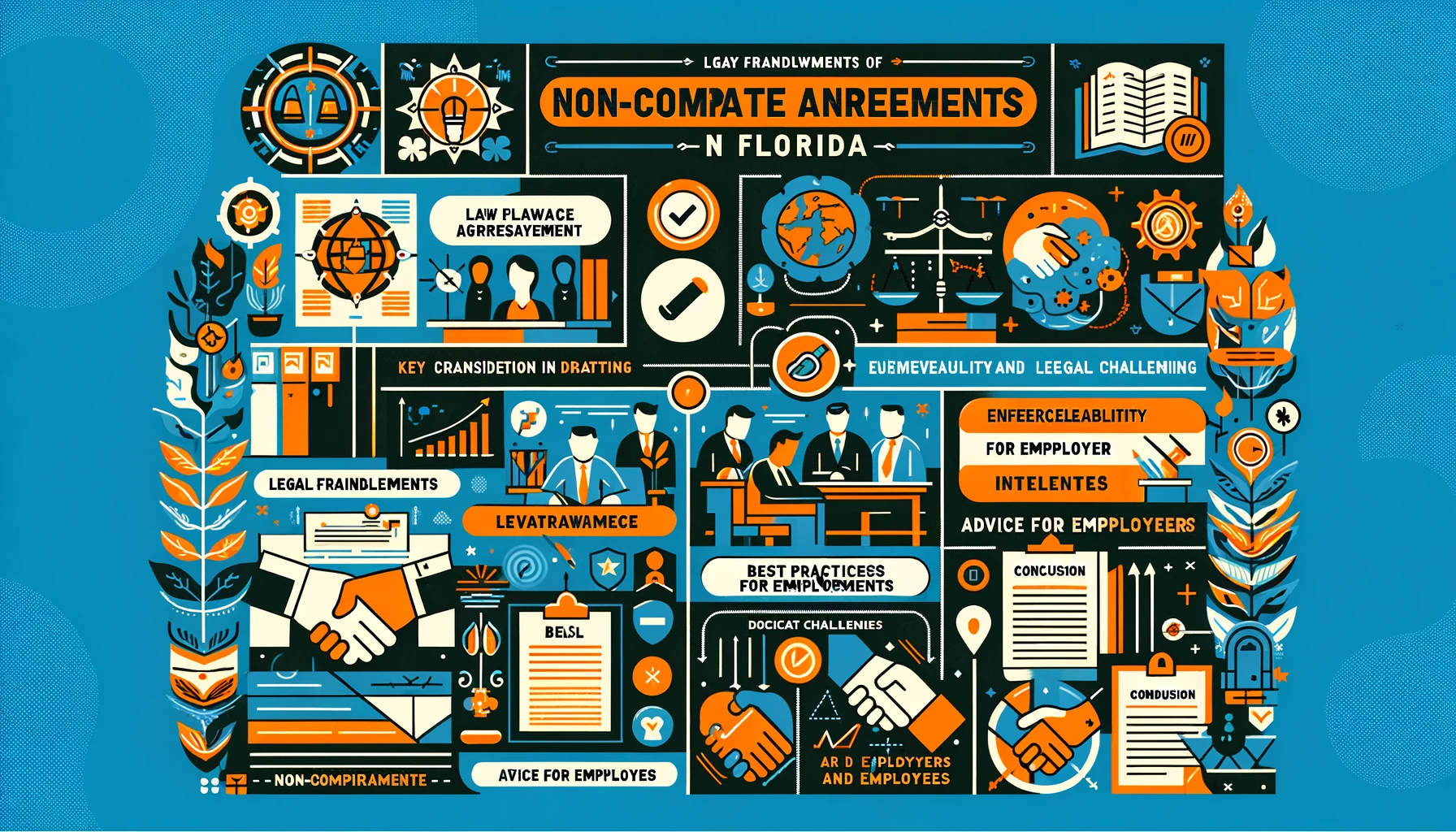Understanding Non-Compete Agreements in Florida: A Comprehensive Guide
In the competitive landscape of Florida's business environment, non-compete agreements play a crucial role in protecting business interests, intellectual property, and trade secrets. However, the enforceability of these agreements is subject to specific legal criteria set forth by Florida statutes and case law. This guide dives deep into the essentials of non-compete agreements in Florida, offering invaluable insights for employers and employees alike, and is supplemented with authoritative resources to ensure accuracy and reliability.

Introduction
Non-compete agreements in Florida are governed by the Florida Statutes, which outline specific conditions under which these agreements can be enforced. Understanding these legal parameters is essential for both employers looking to safeguard their business assets and employees wishing to understand their rights and limitations.
For a foundational understanding of non-compete agreements, Wikipedia offers a broad overview of their purpose and use across different jurisdictions.
Legal Framework for Non-Compete Agreements in Florida
Florida's approach to non-compete agreements is codified in Chapter 542 of the Florida Statutes, particularly section 542.335, which specifies the criteria for enforceability. These agreements are more likely to be enforced in Florida compared to many other states, provided they meet certain legal standards.
Refer to the Florida Legislature's website for the exact statutory language and requirements.
Key Considerations in Drafting a Non-Compete Agreement
Reasonableness in Time and Area: The agreement must specify reasonable limitations in terms of duration and geographical area, taking into account the nature of the business and its legitimate interests.
Legitimate Business Interests: Florida law requires that non-compete agreements protect legitimate business interests, such as trade secrets, confidential information, substantial relationships with specific customers, or specialized training.
Public Policy: The agreement cannot contravene public policy or deprive an individual of their right to earn a living, subject to the protection of legitimate business interests.
For more details on the balance between protecting business interests and ensuring fair employment practices, the University of Florida Levin College of Law provides resources and research on employment law and non-compete agreements.
Enforceability and Legal Challenges
The enforceability of non-compete agreements in Florida is determined by the courts, which closely scrutinize the agreement's compliance with statutory requirements and its impact on the parties involved.
Common Grounds for Contesting Non-Compete Agreements
Excessive Duration or Geographic Scope: Agreements that impose longer durations or broader geographic limitations than necessary to protect business interests may be deemed unreasonable.
Insufficient Protection of Legitimate Business Interests: If an employer cannot demonstrate that the agreement protects a legitimate business interest, it may be invalidated.
Adverse Effect on Public Policy: Agreements that harm the public interest or significantly restrict an individual's employment opportunities may face legal challenges.
For insights into legal precedents and case law regarding non-compete agreements in Florida, The Florida Bar Journal offers articles and analyses by legal professionals.
Drafting and Negotiating Non-Compete Agreements
Creating an enforceable non-compete agreement in Florida requires careful attention to legal details and a thorough understanding of both parties' rights and obligations.
Best Practices for Employers
Tailor Agreements to Individual Circumstances: Customize the scope and terms of the agreement based on the employee's role, knowledge of sensitive information, and market area.
Provide Consideration: Ensure that the employee receives something of value in exchange for agreeing to the non-compete, such as employment, promotion, or monetary compensation.
Seek Legal Counsel: Consult with an attorney specialized in Florida employment law to draft the agreement and navigate any subsequent disputes.

Create & Review Your Contracts 10x Quality and Ease
Lawyer-level AI handles all your contract needs, with real lawyers providing safeguarding support

Advice for Employees
Understand Your Rights: Before signing a non-compete agreement, thoroughly review the terms and understand your legal rights and restrictions.
Negotiate Terms: If possible, negotiate the terms of the agreement to ensure they are fair and reasonable, particularly regarding duration and geographical scope.
Legal Review: Consider having the agreement reviewed by a legal professional who can advise on its enforceability and implications for your career.
Conclusion
Non-compete agreements in Florida serve as a vital tool for businesses to protect their competitive edge while posing significant considerations for employees. Both parties must navigate these agreements with a clear understanding of the legal landscape, ensuring that such contracts are fair, reasonable, and enforceable. Consulting with legal experts and leveraging authoritative resources, such as the Florida Department of Economic Opportunity, can provide further guidance and clarity on non-compete agreements in the Sunshine State.

